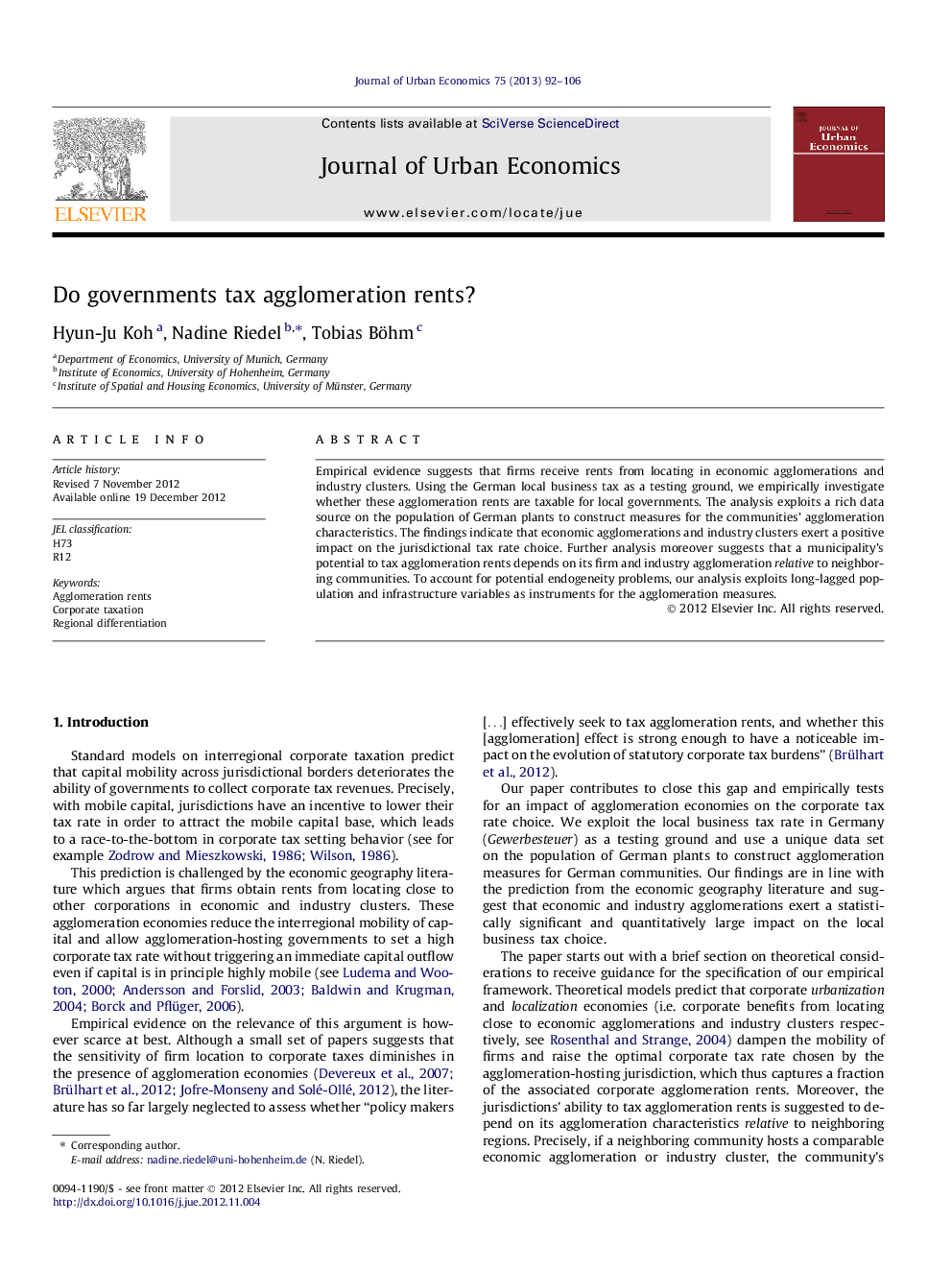| Article ID | Journal | Published Year | Pages | File Type |
|---|---|---|---|---|
| 971217 | Journal of Urban Economics | 2013 | 15 Pages |
Empirical evidence suggests that firms receive rents from locating in economic agglomerations and industry clusters. Using the German local business tax as a testing ground, we empirically investigate whether these agglomeration rents are taxable for local governments. The analysis exploits a rich data source on the population of German plants to construct measures for the communities’ agglomeration characteristics. The findings indicate that economic agglomerations and industry clusters exert a positive impact on the jurisdictional tax rate choice. Further analysis moreover suggests that a municipality’s potential to tax agglomeration rents depends on its firm and industry agglomeration relative to neighboring communities. To account for potential endogeneity problems, our analysis exploits long-lagged population and infrastructure variables as instruments for the agglomeration measures.
